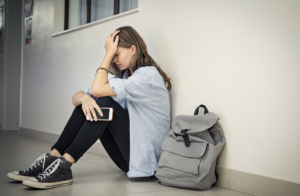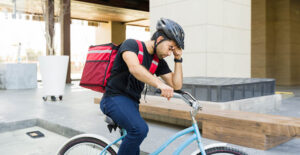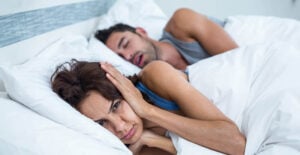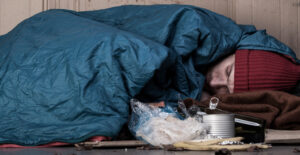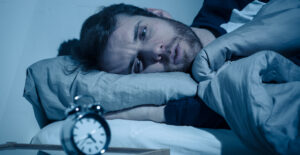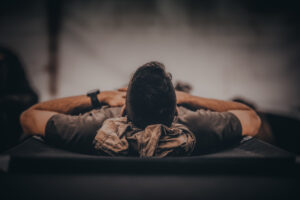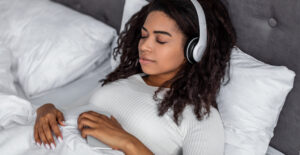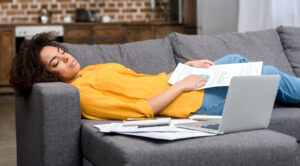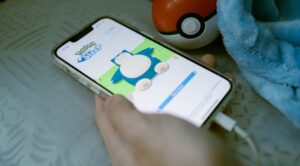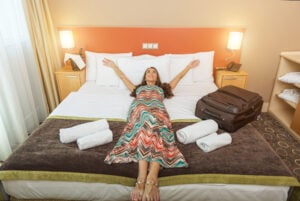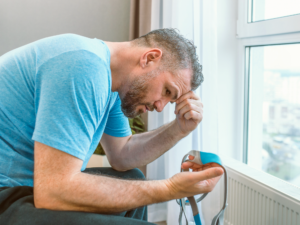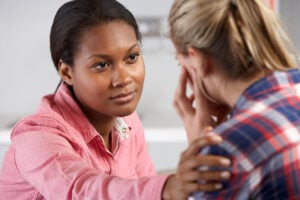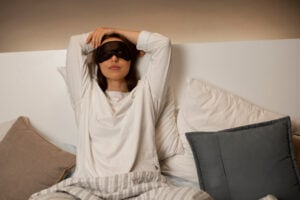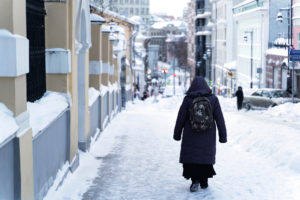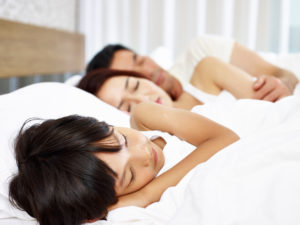Sleep Like the Candidates: How Politicians Rest on the Campaign Trail
Table of Contents
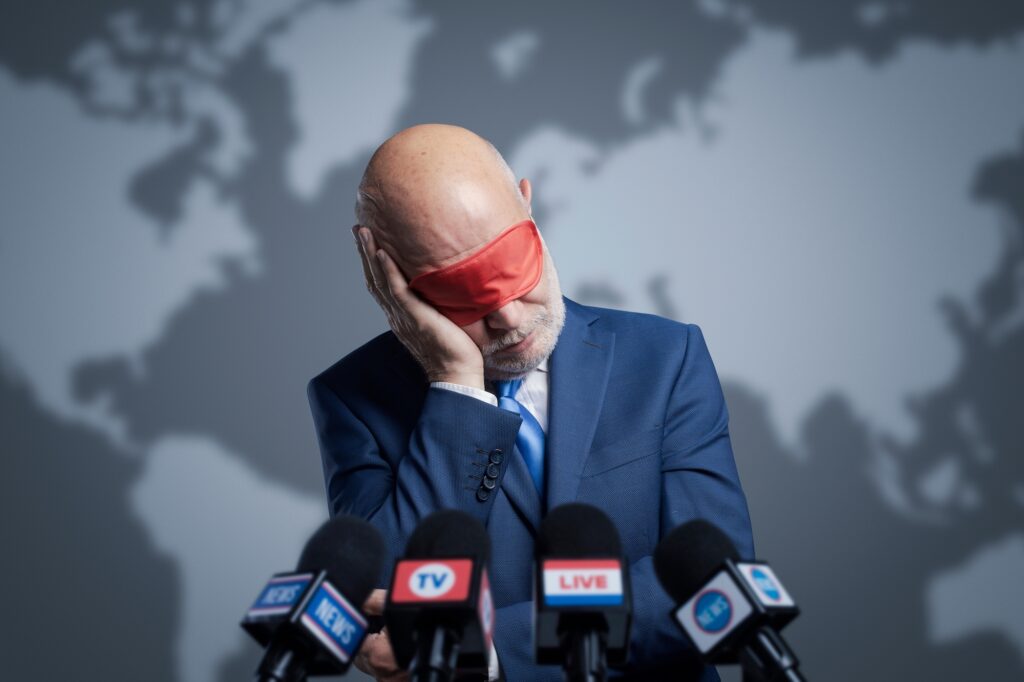
In recent months you may have seen a viral social media post showing images of powerful world leaders nodding off in public. From presidents to senators to Supreme Court justices, politicians, it seems, are a tired bunch.
It’s not surprising, though. The Congressional Management Foundation estimates that House and Senate staffers work more than 53 hours a week when chamber is in session. The pace is even worse during campaign season, according to the trade publication, Campaigns & Elections. A campaign staff – including the candidate – works 60 to 80 hours a week in the time leading up to Election Day.
Ya Liu, a house representative for North Carolina’s District 21, knows this all too well. The lawyer, law school professor, and small business owner works all day for her constituents, then comes home at night to work some more. On the campaign trail in 2022, the freshman representative ran around a lot.
“There wasn’t as much time to sleep while I worked on the campaign because there was a lot on my plate,” she explains. “I would think about trying to juggle everything — between work, my campaign, and the many events we had. I also served on the Cary [North Carolina] town council, so while I ran I still had that role as an elected official that I was going to events for. It was a lot to juggle.”
Seeking Ways to Find Shuteye
Professor and psychologist Peter Economou says it’s not surprising that many candidates get so little sleep. He lumps politicians in with a group he calls high performers that includes executives, entrepreneurs, and professional athletes.
“They are definitely wired differently than the general population,” he says. “But high performers are still humans – they need sleep. In general, that’s eight hours a night, but when a politician is on the campaign trail they are absolutely not getting that much sleep.”
Experts like Economou say there are strategies that politicians (and their busy constituents) can use to rest and recover effectively. Here are four options he says can help candidates get enough rest – that can apply to you as well.
1. They Try and Sleep Consistently – and Consecutively
During the Covid-19 pandemic an NPR report found that dozens of lawmakers were sleeping in their offices. While taking a nap at the office or in the campaign bus might seem like a good idea, it’s only effective if you’re not trying to make up for hours and hours of lost sleep, says Economou.
“People might think they can sleep four hours a night and make up the lost hours with a nap, but most research shows that there’s no additive effect of sleep,” he says. “If you only sleep three hours, but then take a two-hour nap on a flight, and then one hour when you’re somewhere else, it doesn’t have the same effect as eight straight hours does to truly rest.”
Frequent naps can also backfire for some people who may then have trouble falling asleep later in the day. Naps are best when taken earlier in the day and for no more than 20 to 30 minutes at a time, according to experts. A better option: Set aside a longer block of time to sleep at night.
2. They Practice Good Sleep Hygiene
Brad Green, who is running for Congress in Utah’s second congressional district, travels a lot. Green owns a business with offices in the Philippines and spends time in plenty of hotel rooms during his work and campaigning efforts. He shoots for at least six hours of sleep each night, and makes it happen by sticking to a strict bedtime routine. He uses his CPAP machine, whether he’s sleeping on a plane or in a hotel room, and keeps his sleeping space cool and “as dark as possible.”
“I don’t even use an alarm clock anymore, because the glow from the alarm clock would cause restless sleep,” he says.
Green is making good choices for his sleep quality, says Dr. Carol Yuan-Duclair, a board-certified sleep physician. “I’m impressed by how much effort he is putting into getting a good night’s sleep. That’s what I see as the number one problem when people get busy. Sleep is the first thing that they let go because they feel that it’s something that’s passive – that it doesn’t seem to really do anything for you.”
Dr. Yuan-Duclair suggests that candidates and the rest of us think about what is important to us as sleepers. On days when you fall asleep quickly, what are the common denominators? When you wake up in the middle of the night, what roused you?
Congresswoman Dina Titus from Nevada’s first congressional district says she often stays up until 2 or 3 a.m. reading, doing homework, and writing speeches, but when it’s time to go to sleep, she has her go-tos that help her nod off and stay asleep.
“Feather pillows and a down comforter with my cat on my feet when I’m home,” Titus explains.
3. They Avoid Becoming Jet Lagged.
Jet lag is a temporary sleep disorder that occurs when a person’s internal clock or circadian rhythm is disrupted due to travel to another time zone. Politicians, who may travel weekly to Washington D.C. or overseas, struggle with jet lag often, says Dr. Yuan-Duclair. The disorder can lead to headaches, sleepiness, and cognitive issues such as reduced attention, forgetfulness or inability to concentrate. It can also affect your immune system , based on research on mice, which may be why people get sick after traveling.
Titus has a six-hour commute between her home state of Nevada and Washington D.C. and there is a three-hour time difference between the two. She has a strategy for dealing with her own jet lag, she says. “When I’m in the capitol, I go to sleep on Las Vegas time but get up on DC time. I cope with jet lag by never changing my watch,” Titus says.
While this works for the congresswoman, experts say that if you do want to reset your internal clock there are easy strategies. For example, two good ways to reset your internal clock is by taking a melatonin supplement and making sure you get exposure to morning light, Dr. Yuan-Duclair says.
“When traveling east, to help our bodies do the super unnatural, which is going to bed early and getting up early, take a small dose of melatonin a few hours before bedtime, avoid sun exposure in the late afternoon and evening–wear sunglasses–and get plenty of sunlight in the day,” she says.

4. They Set Aside Time to Wind Down at the End of the Day.
Representative Liu makes sure she finishes outstanding tasks or work way before bedtime so that she isn’t thinking about what she needs to do the next day. She also avoids coffee and sticks with tea as her bedtime draws near. If she wakes up or can’t fall asleep she reads something “boring.”
Dr. Yuan-Duclair suggests avoiding heavy meals too close to bedtime, and trying to capitalize on as much time sleeping at night as you can by avoiding electronics and tasks or activities that tend to keep you awake. You can also ask a friend or family member to remind you to start winding down for sleep the way a politician’s campaign manager might remind them that they need to leave an event because they have a full calendar in the morning.
“Even if you cannot get the full seven hours of sleep or whatever it is that your body needs, if you can just go to bed a little bit earlier — which sometimes means not staying on your phone and scrolling — that 15 minutes every day in the long run makes a big difference,” she says. “Sometimes in as short as a few weeks or months, you will notice a change in your energy level from those few extra minutes of sleep.”
Got a hot tip? Pitch us your story idea, share your expertise with SleepFoundation.org, or let us know about your sleep experiences right here.
References
5 Sources
-
The Congressional Management Foundation. (2014) Life in Congress: Aligning Work and Life in the U.S. House and Senate, The Congressional Management Foundation (CMF) and the Society for Human Resource Management (SHRM)
https://www.congressfoundation.org/revitalizing-congress/life-in-congress/973-aligning-work-life-in-house-senate -
Rosen, D. (2014). Why campaign hours are wrecking your campaign. Campaigns & Elections.
https://campaignsandelections.com/industry-news/why-campaign-hours-are-wrecking-your-campaign/ -
Sprunt, B. (2020). Pandemic Revives Calls To Ban Lawmakers From Bunking In Their Offices. NPR.
https://www.npr.org/2020/05/13/852359650/pandemic-revives-calls-to-ban-lawmakers-from-bunking-in-their-offices -
Weingarten, J. and Collop, N. (2013) Air Travel: Effects of Sleep Deprivation and Jet Lag, Contemporary Reviews in Sleep Medicine.
https://www.sciencedirect.com/science/article/abs/pii/S0012369213606881 -
National Science Foundation. (2020) Scientists show jet lag impairs immune response in mice.
https://new.nsf.gov/news/scientists-show-jet-lag-impairs-immune-response


